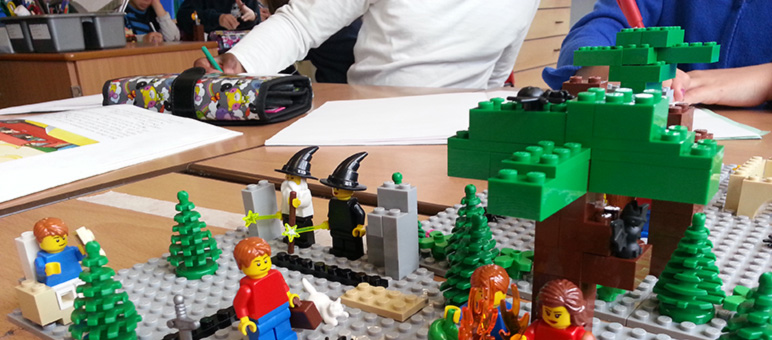
Introduction
Concluding in 2015, the overall aim of the PLaNS project was to investigate the influence that a playful learning approach could have on 5-10 year olds’ narrative and writing skills.
Being able to construct a clear narrative, in fictional form as a story, or in a non-fictional form as a descriptive account or a set of instructions, is a crucial skill, within educational contexts and beyond. There is a major concern that many children do not master these skills as well as they might, having implications for their oral and written narrative skills, and on aspects of their text comprehension (for example, the ability to identify the main points in a story or a factual text).
Using LEGO sets, primary school teachers had free rein to develop playful activities to inspire children’s narratives and writing during a full academic year. Children worked together in groups to create stories and develop their writing in several ways - through comic strips, movies, 3D storyboards and more besides.
The PLaNS research team evaluated children at the beginning and end of the school year to measure the impact of this teaching approach on a range of skills: writing, oral narrative skills, vocabulary, self-regulation and creativity. Children and teachers were also observed in the classroom throughout the academic year, and interviewed by the research team in order to understand learning experiences from the participant's perspective.
Watch a video about the PLaNS project and download the PLaNS practical handbook for teachers.
Project Information
Principal Investigator
David Whitebread
Research Associate
Marisol Basilio
Associates/Secondary Investigators
Helen Bradford
Mary Anne Wolpert
Funding
The LEGO Foundation, March 2013 to June 2015.
